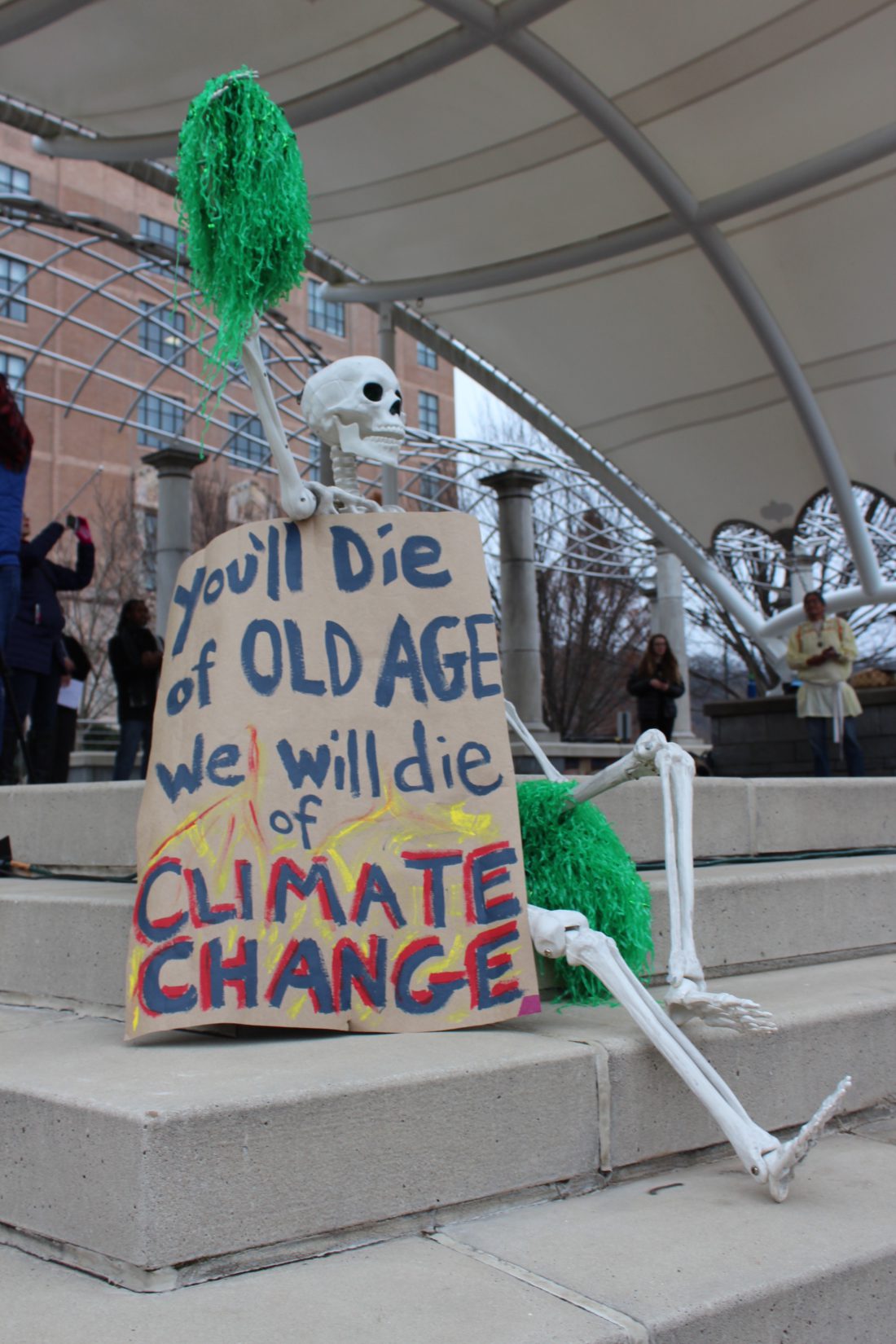For the second time in as many meetings, members of Asheville City Council passed a measure addressing what the officials view as an escalating environmental emergency. But while local climate activists share that concern, they presented differing visions of the best way to proceed at Council’s Feb. 11 meeting.
In the end, the board approved a resolution that urges Congress to pass the Energy Innovation and Carbon Dividend Act. The move followed Council’s Jan. 28 unanimous vote calling for more aggressive government action to combat “our current ecological crisis.”
The proposed federal legislation is backed by the Citizen’s Climate Lobby, an international grassroots environmental group, and would impose a steadily increasing fee on fossil fuels such as coal, oil and gas. The government would then evenly distribute the revenue collected from the fee to all citizens.
Asheville’s resolution in support of the proposal, introduced in Congress as HR 763, was removed from the consent agenda and considered separately at the request of Council member Brian Haynes. He pointed out that the bill would prevent the Environmental Protection Agency from regulating carbon emissions until 2030 and would exempt the U.S. military, one of the world’s largest consumers of fossil fuels, from paying the tax. Of the bill’s co-sponsors, he added, 48 have taken money from the oil, gas and electric utility industries.
“We can no longer allow the fossil fuel and utilities industries to help write legislation ensuring their own self-preservation while their actions continue to move the planet toward irreversible, catastrophic changes to the environment,” Haynes said. “At our previous meeting, the Council unanimously passed a climate emergency resolution calling for bold actions to combat the climate crisis. HR 763 fails to meet that challenge.”
Before Council passed the resolution in a 6-1 vote, with Haynes opposed, eight members of the public shared differing opinions. Resident Charles Warner suggested that a tax on carbon would negatively impact low-income people and asked that Council instead support other climate change initiatives, such as carbon sequestration.
“[The bill] is, quite frankly, a carbon tax. Now that sounds great, but keep in mind that a carbon tax imposed on utilities and other people — they do not pay it. They simply pass it right along,” Warner said. “It will come down to you; it’ll come down to me; it’ll come down to the aging; it will come down to the poor; it will come down to those who are on fixed incomes.”
Asheville resident and CCL volunteer Dan Glenn, who supported the bill, said it represented just one step in efforts to reduce carbon emissions and that concessions on both sides were necessary to garner bipartisan support.
“We want to pass something that is durable, that hopefully, with slight changes in Congress, won’t get overturned like all the regulations that have been overturned by the current administration,” Glenn said. “There are compromises that need to be made.”
In other news
Council rescheduled its annual retreat from Feb. 14 to Friday, March 13, starting at 8:30 a.m., at Harrah’s Cherokee Center — Asheville. Mayor Esther Manheimer said that the issue of funding extending bus service hours would be on Council’s agenda for the meeting. No explanation was provided for the one-month delay.
Editor’s note: This story was edited at 5:05 p.m.




We could use fewer proclamations and meaningless endorsements of federal bills that are going nowhere.
Does the Asheville Council opt not to do their job of directing the city or are they incapable of doing so?